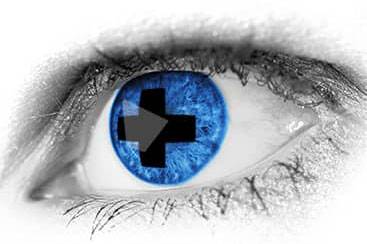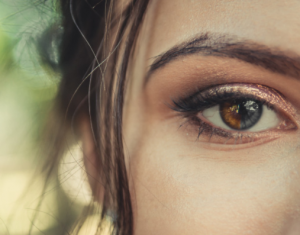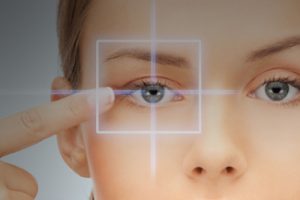Serious eye problems often do not cause any pain. Here are 8 warning signs that should not be ignored.
According to the Centers for Disease Control and Prevention (CDC), more than 21 million Americans are impacted by vision problems. Many of these issues are comparatively minor, such as mild hyperopia (farsightedness) or myopia (nearsightedness), both of which can be corrected with eyeglasses or contact lenses.
However, eye conditions such as glaucoma, retinal detachment, diabetic retinopathy and wet age-related macular degeneration can cause sudden damage to your eyes – even complete and permanent blindness, if your eye doctor doesn’t detect and treat them early.
It’s important to know the signs and symptoms of these serious eye conditions, so you can alert your eye doctor immediately if you are experiencing them.
Here are 8 “Do Not Ignore” warning signs of serious eye problems.
1. Sudden blurry or distorted vision
This symptom may be the most obvious one for patients to notice.
If you experience sudden blurriness or a distortion in your vision, like a straight line that appears wavy, consult your eye doctor immediately.
Sudden blurry vision can affect either your peripheral vision or in your central vision, and can be a sign of many very serious eye conditions.
Some of these conditions require immediate attention from an eye care professional in order to prevent permanent total or partial blindness.
Conditions that may cause blurry or distorted vision include:
- Detached retina
- Angle-closure glaucoma
- Corneal infection
- Wet age-related macular degeneration
- Macular edema
- Conjunctivitis (pink eye)
- Diabetic retinopathy
2. Swelling on or around the eye
Inflammation and irritation of the eyelids and the tissues surrounding the eye can cause the eye to swell and become discolored.
Swelling around the eye can be caused by trauma anywhere on the head, face or neck, or from a mild to severe allergic reaction to bug bites, pollen, animal dander or other allergens and irritants in the environment.
Usually, the swelling goes down as the affected area heals, or the allergens causing the swelling are removed.
However, if swelling persists over a longer period of time, this may be a sign of a more serious issue, such as:
- Black eye
- Corneal ulcer
- Graves’ disease
- Cellulitis
- Scleritis
- Blocked tear duct
- Conjunctivitis (pink eye)
- Blepharitis
3. Headaches
Headaches can feel different depending on what is causing them. Individuals can feel a dull ache or sharp pain behind their eyes or in the temples.
Headaches can come and go quickly, or they can linger for hours or days.
If there are no serious underlying issues, over-the-counter medications can be very helpful.
However, if regular headache medications aren’t working and the pain persists, it is advisable to consult healthcare professionals.
Although they are often a sign of emotional or physical stress, headaches can also be a symptom of serious eye conditions as well.
Some of these conditions may be emergencies requiring an urgent call to your eye doctor immediately.
Eye conditions that can cause headaches include:
- Photokeratitis (sunburn of the eye)
- Angle-closure glaucoma
- Migraine
- Corneal infection
- Eyestrain
SEE RELATED: Pressure Behind the Eye: 6 Frequent Causes
If you are experiencing any signs on this page you may have an eye disease or injury that requires immediate attention. Contact an eye doctor immediately.
4. Red eyes
When your eyes become irritated or inflamed, the blood vessels expand, causing the white parts of your eyes to appear pink or red. This can be caused by a number of factors, including allergies, smoke and pollutants in the air around you.
If you suddenly notice red eyes, you may have an eye condition that, in serious cases, can potentially cause long-term eye damage and even blindness.
Injuries and conditions that can cause extended red eye are:
- Uveitis
- Blepharitis
- Conjunctivitis (pink eye)
- Glaucoma
5. Oversensitivity to light
Our eyes are naturally equipped to deal with varying degrees of light.
However, when the eye is unable to cope with the amount of incoming light, it causes what’s known as photophobia, or light sensitivity.
Some mild photophobia is normal, as when you walk outside after a movie at the theater, or when first waking up in the morning to sunlight in your room.
But severe photophobia that lingers may be a sign of something more serious.
Severe or extended photophobia may signal:
- Migraine
- Cataracts
- Strabismus (eye turn, either inward or outward)
- Allergies
- Keratoconus
- Corneal abrasion (a scratch on the eye)
5. Floaters
Floaters are the little lines, dots, specks and webs that seem to float around in your vision, especially when you’re looking at plain or blank objects, such as a white wall or blank computer screen.
If you experience a sudden onset of floaters, or more floaters than you’re accustomed to, you should contact your eye doctor immediately.
Although they seem to be floating around in front of your eyes, what you are actually seeing is clumps of cells floating inside your eyes. These clumps cast shadows on the retina, at the back of your eye, and appear as floaters.
As with many things on this list, occasional floaters in small numbers should not be cause for concern.
Some conditions that may cause severe floaters are:
- Uveitis
- Torn retina
- Detached retina
- Ocular lymphoma
- Diabetic retinopathy
- Posterior vitreous detachment
6. Night blindness
Normally the eye is well equipped to handle low-light situations. The pupil will expand to take in as much available light as possible, allowing us to see in poorly-lit environments.
Some serious eye conditions limit the eye’s ability to take in this light or to process it, making it difficult to see at night or in dimly lit environments.
Conditions that can cause night blindness include:
- Nystagmus
- Glaucoma
- Cataracts
- Retinitis pigmentosa
7. Flashes
Sudden flashes in your vision can be common as you age, as this usually happens as a result of vitreous fluid tugging or rubbing on the retina, at the back of your eye.
If you notice lights that can appear as lightning flashes, flashing bulbs, or bright stars, these can be the first sign of injury or other eye conditions.
A worrying sign is seeing these after a head injury or concussion.
Conditions that can cause flashes include:
- Migraine
- Detached retina
- Torn retina
- Post-surgical complications
LEARN MORE: Guide to Eye Health
If you are experiencing any signs on this page you may have an eye disease or injury that requires immediate attention. Contact an eye doctor immediately.
It’s important to know the signs and symptoms of serious eye conditions, so you can alert your eye doctor immediately if you are experiencing them.
Early treatment of serious eye conditions could restore your vision and ensure you enjoy years of good eye health.










